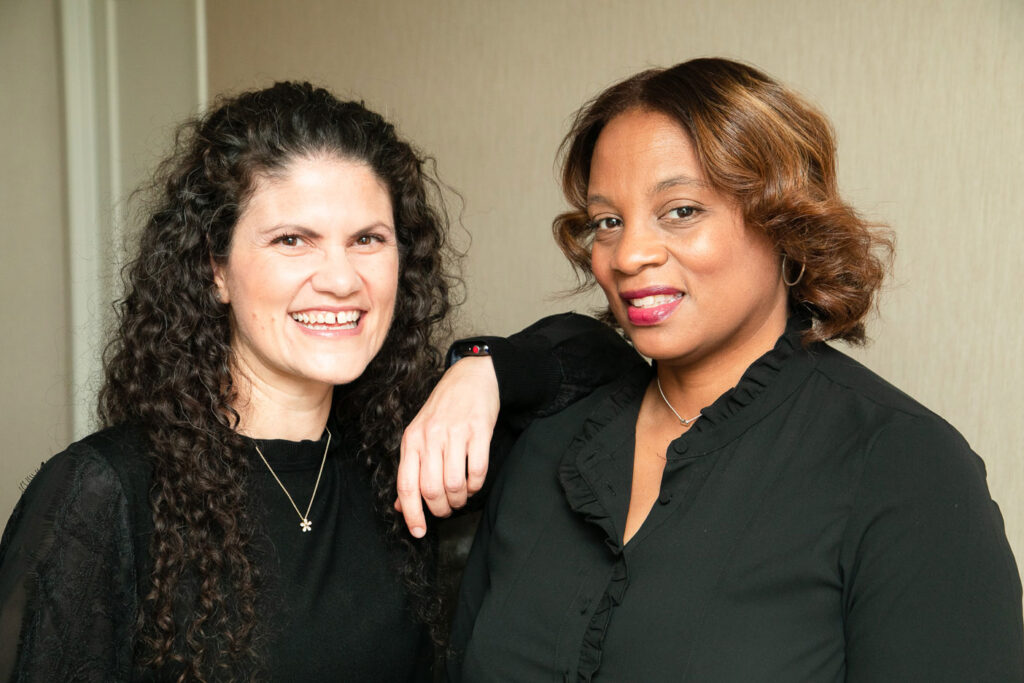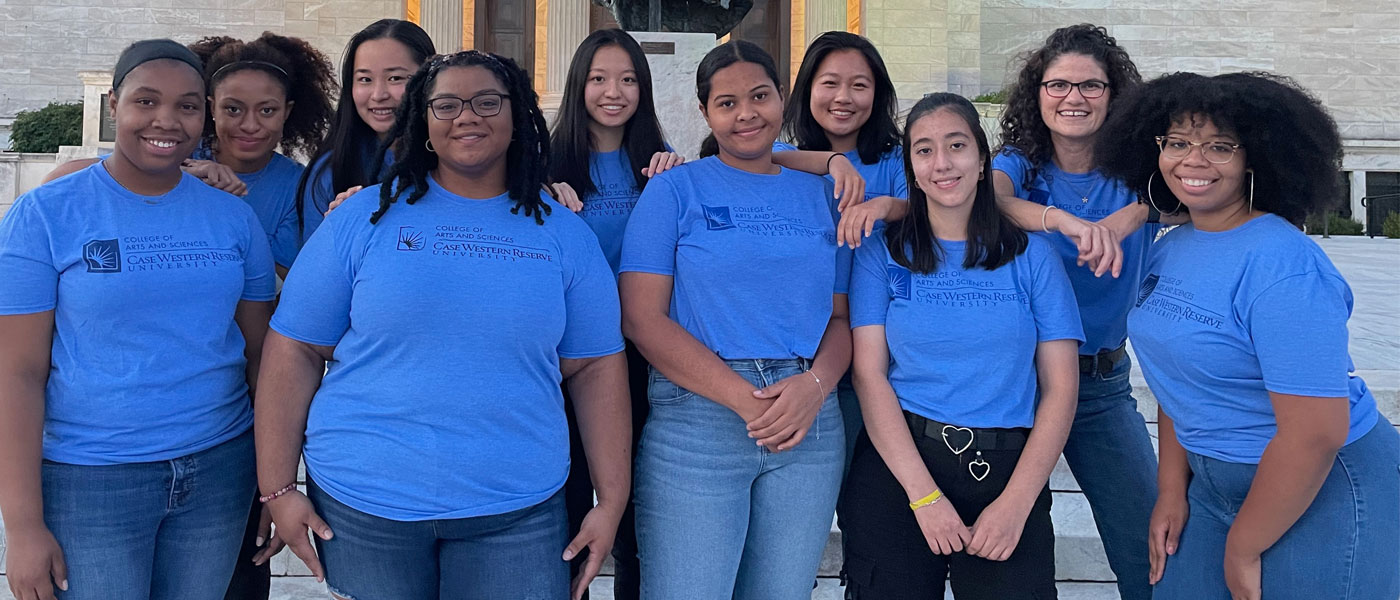Serena Wheeler’s first encounter with the communication sciences field was through her brother, who has autism and works with a speech-language pathologist. But despite this early, personal connection to the field, Wheeler didn’t initially consider it as a career. Instead, she came to Case Western Reserve University planning to complete a degree in computer science.
Things didn’t quite work out that way. After a challenging semester, Wheeler decided to switch directions. Inspired by a friend in the communications sciences major, Wheeler gave it a try and fell in love. In the program, she was instantly welcomed, particularly by Lauren Calandruccio, the Louis D. Beaumont University Professor in the Department of Psychological Sciences. An added bonus? The IMPACT (Innovative Mentoring & Professional Advancement through Cultural Training) Program.
IMPACT, offered collaboratively with Hampton University—a Historically Black College and University—has been providing structured mentorship experiences for the past three years for students from both institutions, encouraging those who identify as people from backgrounds that have been historically underrepresented in biomedical, clinical, behavioral and social sciences research in the United States to participate.
Now, with support from a five-year, $1.25 million National Institutes of Health Research Education Program grant, Case Western Reserve aims to be part of the solution to improve representation.

Calandruccio launched the IMPACT Program three years ago with co-director and collaborator Jessica Sullivan (Hampton University) to improve their students’ readiness for graduate school and beyond —and to work toward diversifying an overwhelmingly homogeneous field.
The American Speech-Language-Hearing Association (ASHA), the largest national professional, scientific and credentialing association for audiologists, speech-language pathologists, and speech, language, and hearing scientists, reports its membership is 91.3% white (as of 2021), with just 8.7% of members from an underrepresented population. When compared to the racial and ethnic makeup of the United States as a whole—which has a reported 38.4% of citizens from underrepresented populations—the difference is stark.
The new grant allowed Calandruccio to revamp the structure of the program, which had originally been funded by ASHA and then through support from the LaCalle Group. Further bolstering the reach of the program are partnerships with Boys Town National Research Hospital, professional organizations and other institutions.
Student outcomes
As a part of the program, undergraduate students receive a stipend for participating in 150 experience hours (75 per semester), while graduate students complete 50 experience hours (25 per semester), allowing them time to invest in themselves. Experience hours can be attained by participating in IMPACT book clubs, meeting with IMPACT research and affinity mentors, completing curated LinkedIn Learning modules, and other professional development opportunities.
This summer, Wheeler saw the direct benefit of that mentorship after earning a slot in a highly regarded research program at The University of Texas at Dallas. There, she’s working with patients seeking gender-affirming care—a specialty she now considers a viable future career path.
“That’s something I had never considered,” Wheeler said.
Crystal Bell, a graduate student in the communication sciences master’s program, also has received valuable professional development opportunities through the IMPACT Program.
Bell, who participated in IMPACT her senior year at Hampton University, found the program’s networking experiences, writing assistance, graduate school preparation and leadership opportunities all had a positive influence on her growth in the field—and put CWRU on her radar for graduate school.
After just a year in the graduate program, Bell has already had several opportunities to put her education into practice in the community At Cleveland Hearing and Speech Center, she helped conduct evaluations for pediatric clients and worked with adult patients who had neurological conditions like traumatic brain injuries and strokes. This summer, she is taking part in her first externship at Cleveland Clinic, working in acute care.
“IMPACT definitely gave me a lot of tools I needed to push myself to go after opportunities. Before I was in IMPACT, I was a little bit more shy and timid,” Bell said. “Working with my mentors [Sullivan and Calandruccio] and IMPACT, and working with the professionals they’ve connected us with, has built my confidence to go after [leadership roles].”
Learn more about the IMPACT Program and discover more about the communication sciences master’s program at Case Western Reserve University.


